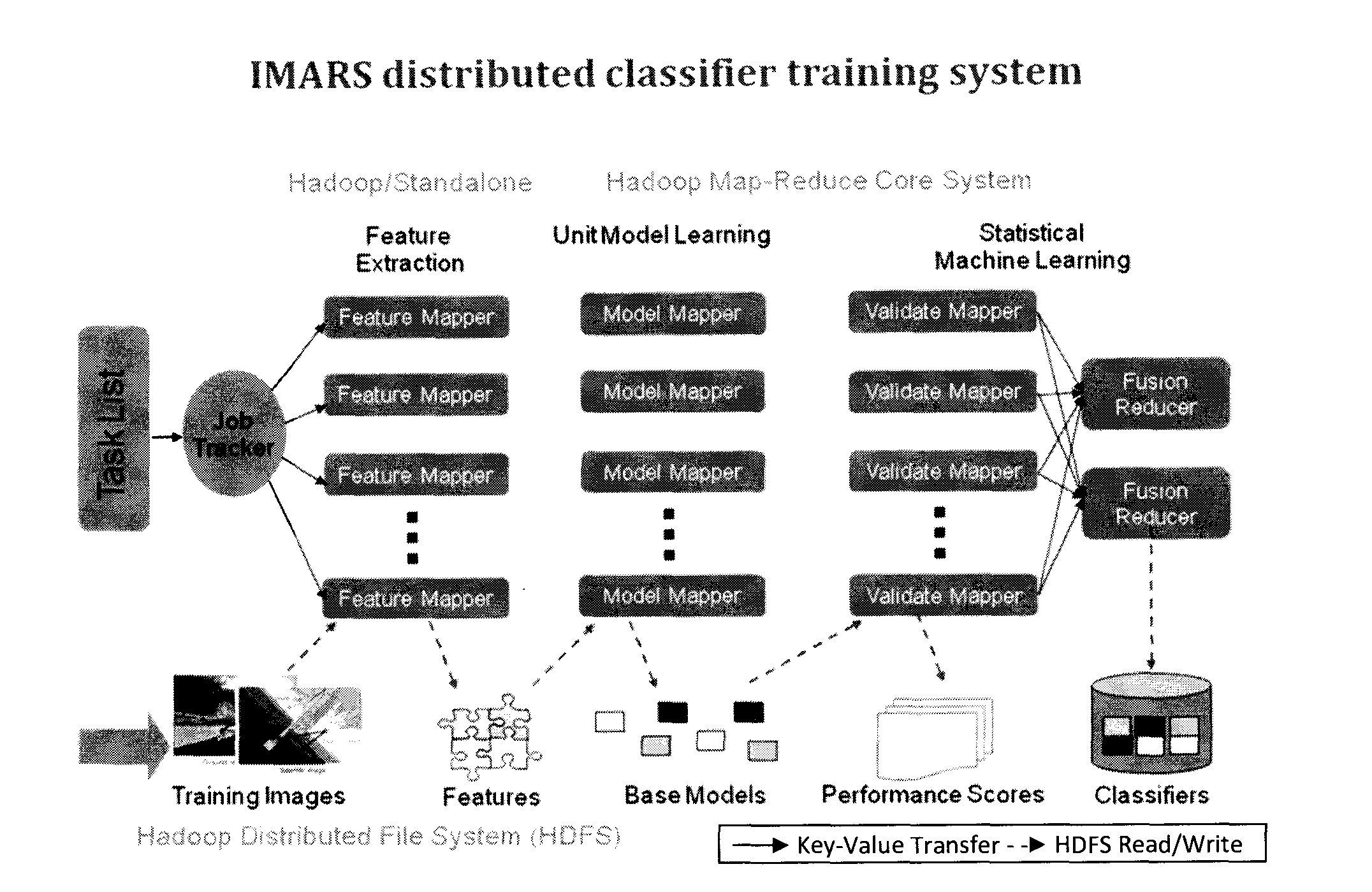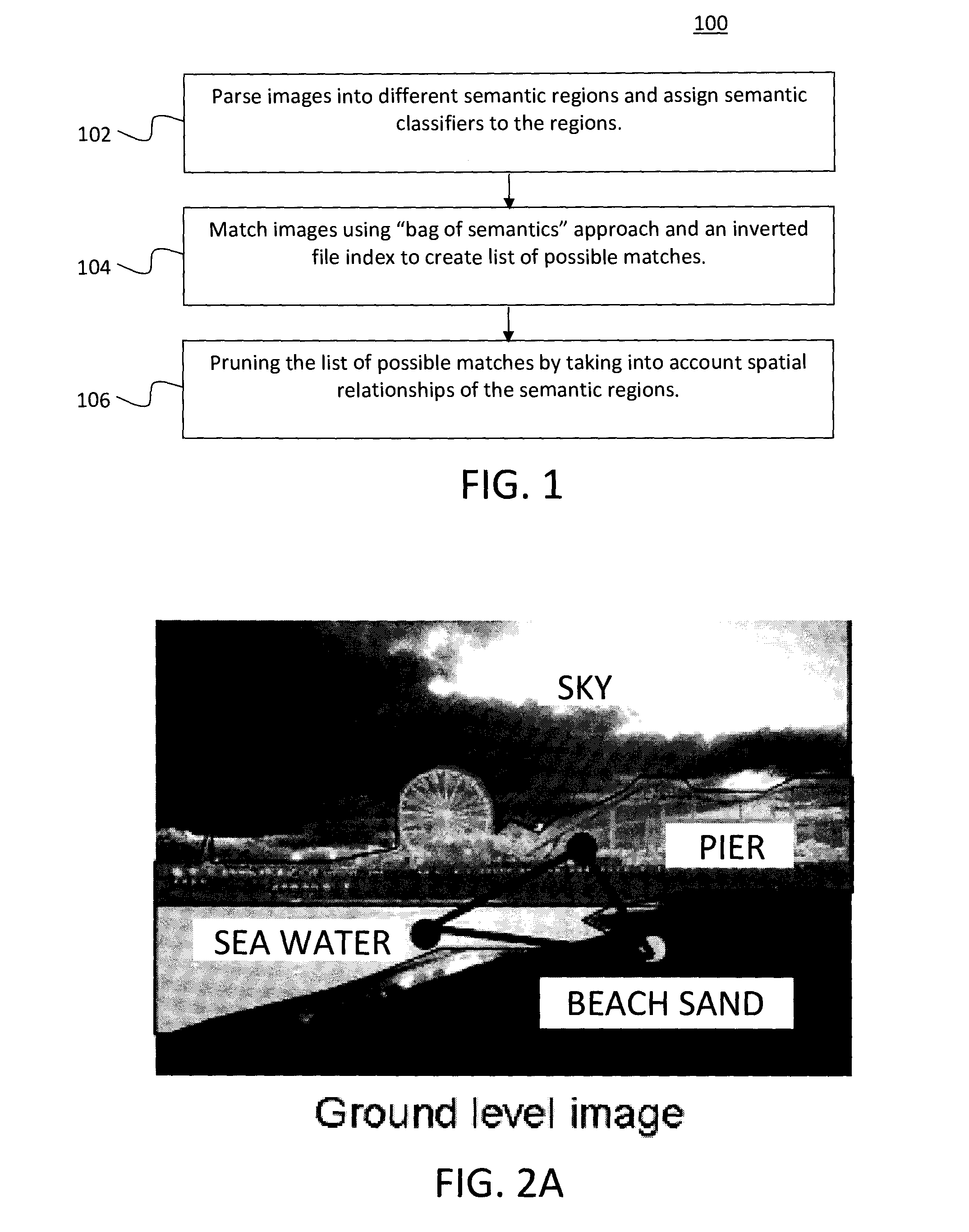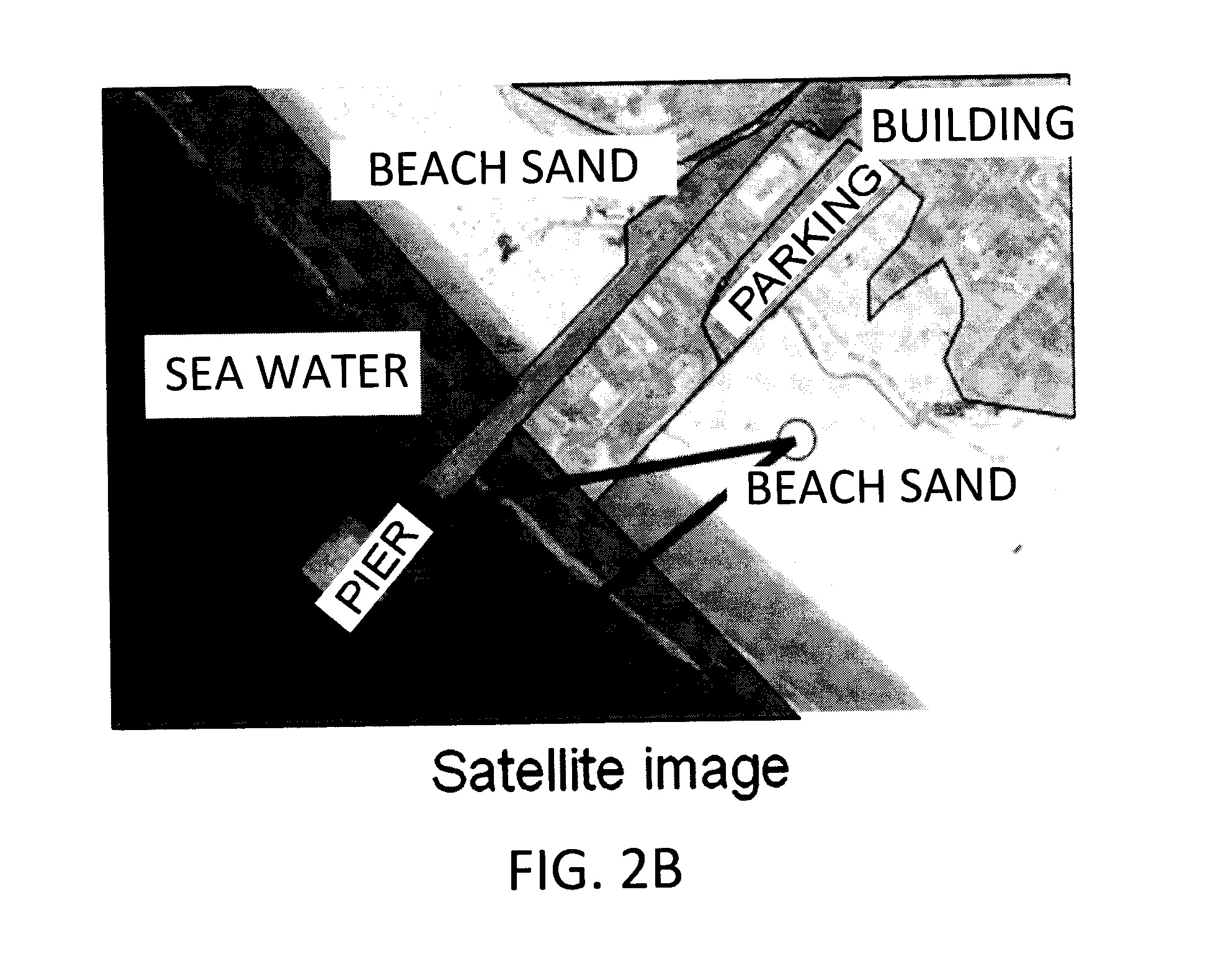Techniques for Spatial Semantic Attribute Matching for Location Identification
a technology of spatial semantic attribute and location identification, applied in scene recognition, instruments, computing, etc., can solve the problem of difficult to achieve robust matching of images of different types and across different views based on purely low level features
- Summary
- Abstract
- Description
- Claims
- Application Information
AI Technical Summary
Benefits of technology
Problems solved by technology
Method used
Image
Examples
Embodiment Construction
[0013]Provided herein are techniques for spatial semantic attribute matching on image regions for location identification of images in the wild based on some given reference dataset. As will be described in detail below, IMARS-based semantic classifiers may be utilized to automatically or semiautomatically parse an image from any source into semantic labeled image regions. IMARS is described, for example, in A. Natsev et al., “IBM multimedia analysis and retrieval system,” ACM International Conference on Content based Image and Video Retrieval (CIVR'2008), pp. 553-554, 2008 (herein “Natsev”), the contents of which are incorporated by reference herein.
[0014]Semantic attribute based matching has become popular for visual recognition research in the past several years. Successful applications including face recognition, image search and retrieval, action recognition, visual aesthetics appraisal, etc., to name a few. See, for example, N. Kumar et al., “Attribute and Simile Classifiers f...
PUM
 Login to View More
Login to View More Abstract
Description
Claims
Application Information
 Login to View More
Login to View More - R&D
- Intellectual Property
- Life Sciences
- Materials
- Tech Scout
- Unparalleled Data Quality
- Higher Quality Content
- 60% Fewer Hallucinations
Browse by: Latest US Patents, China's latest patents, Technical Efficacy Thesaurus, Application Domain, Technology Topic, Popular Technical Reports.
© 2025 PatSnap. All rights reserved.Legal|Privacy policy|Modern Slavery Act Transparency Statement|Sitemap|About US| Contact US: help@patsnap.com



